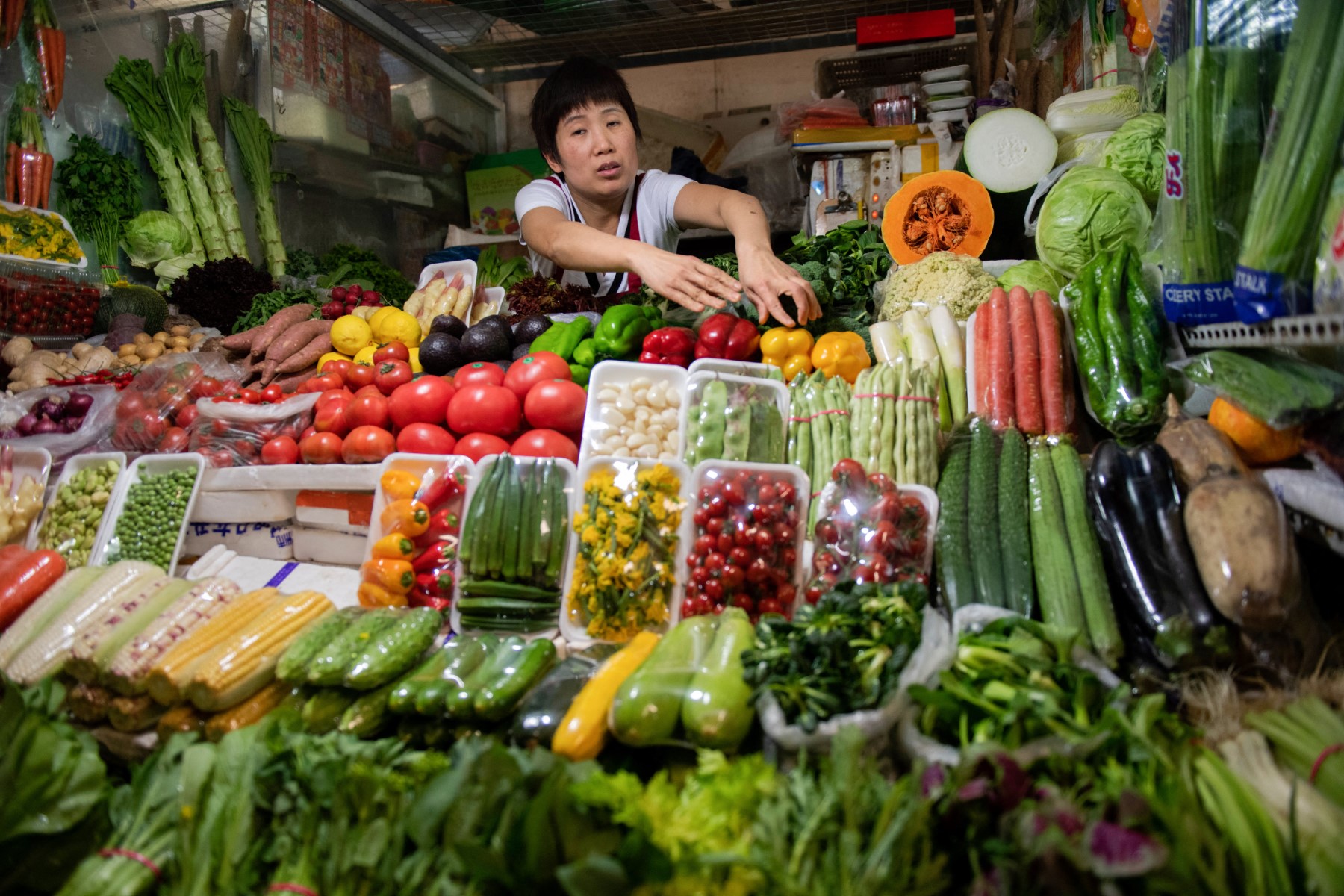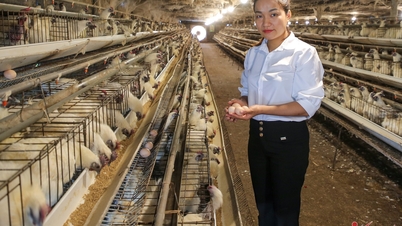US agricultural products are in China's crosshairs as Beijing prepares countermeasures against new import tariffs imposed by Mr Trump that take effect tomorrow.

A vegetable stall in a market in Beijing, China - the world's leading agricultural importer today - Photo: AFP
The information reported by the Global Times on March 3 increased tensions in the trade war between the world's two leading economies.
Last week, US President Donald Trump announced that starting March 4, he would impose an additional 10% tariff on Chinese goods, which were already subject to a 10% tariff. Washington has accused China of failing to stop the flow of the addictive painkiller fentanyl into the US, which Beijing has criticized as “blackmail”.
"China is studying and formulating relevant countermeasures to respond to the US threat to impose an additional 10% tariff on Chinese products under the pretext of fentanyl.
Countermeasures will likely include both tariffs and a series of non-tariff measures, and US agricultural and food products are likely to be on the list, the Global Times quoted sources as saying.
China's Ministry of Commerce and the US Embassy in Beijing have not commented on the matter.
China is the largest market for US agricultural products and the sector is often used as a punching bag during trade tensions.
"Although imports (from China) have declined since 2018, any tariffs on key US agricultural products such as soybeans, meat and grains could have a significant impact on US-China trade as well as US exporters and farmers," Reuters news agency quoted expert Genevieve Donnellon-May of the Oxford Global Society research organization as saying.
After what happened during Trump's first term, US industry has had time to prepare for a second term and trade war 2.0, according to Ms Donnellon-May. "So in theory they should be in a better position to look for alternative markets. But the reality could be much more complicated," she said.
China, the world's top agricultural importer, imported $29.25 billion in US agricultural products in 2024, down 14% from a year earlier and following a 20% decline in 2023.
US tariffs on goods from Canada and Mexico will also take effect on March 4. In a statement on March 2, US time, US Secretary of Commerce Howard Lutnick left open the possibility that Mr. Trump will not impose the 25% tax as threatened.
"It's a fluid situation. Tuesday there will be tariffs on Mexico and Canada. Exactly what those tariffs are, we'll leave it to the president and his team to negotiate," Lutnick said on Fox News, arguing that the two neighbors have taken "reasonable" measures to control their borders despite the flow of fentanyl into the United States.
Source: https://tuoitre.vn/trung-quoc-se-nham-vao-nong-san-my-de-dap-tra-thue-cua-ong-trump-20250303133243197.htm


![[Photo] General Secretary To Lam presents the title "Hero of Labor" to the Party Committee, Government and People of Ho Chi Minh City](https://vphoto.vietnam.vn/thumb/1200x675/vietnam/resource/IMAGE/2025/4/30/08a5b9005f644bf993ceafe46583c092)

![[Photo] Flag-raising ceremony to celebrate the 50th anniversary of the Liberation of the South and National Reunification Day](https://vphoto.vietnam.vn/thumb/1200x675/vietnam/resource/IMAGE/2025/4/30/175646f225ff40b7ad24aa6c1517e378)


![[Photo] Performance of the Air Force Squadron at the 50th Anniversary of the Liberation of the South and National Reunification Day](https://vphoto.vietnam.vn/thumb/1200x675/vietnam/resource/IMAGE/2025/4/30/cb781ed625fc4774bb82982d31bead1e)




























































































Comment (0)